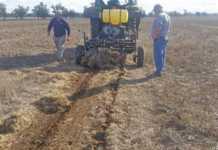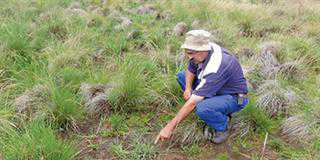We need to change our thinking about something that’s caused the financial ruin of many a farmer. It’s an attitude that’s been inherited and is now being passed on to the future generation. I am referring to the unchangeable ‘rule’ that farmers should not have to pay for knowledge that will enable them to farm more profitably – they’re entitled to get it for free.
And I want to make a strong case for a paradigm shift. I know I’m going to create a furore, but that doesn’t bother me. Let me start by asking you this: what free service has ever been a real success? By ‘real’ I mean a quality service that gives everyone who uses it what they need whenever they need it.
The truth is that most free services render a poor service, especially to those who need it, at an inconvenient locale and at an inconvenient time. To add insult to injury, the recipient of the free service is all too often treated as a number on a list. Am I exaggerating? Just think about our national health service.
I was very frustrated by the free-agricultural-service paradigm when I worked for a co-op. It had 300 members and, theoretically, every member had an equal right to my time when it came to assisting them in their farming ventures. I soon found out it’s hazardous to propose structural changes to farming operations without first doing an in-depth, time-consuming financial analysis of the operation – one which enables you to predict the net profit with a fair degree of accuracy.
Doing it right
After completing this you can’t just walk away. You have to be on-site at least four times a year to monitor progress and help solve the problems that invariably arise. You also have to provide detailed plans for the next phase. What’s more, if the project fails you’ll be blamed!
Now lets do some maths. Allow a minimum of four days for operation planning and financial analysis, then four days a year for follow-up and another four days for progress reports. That is 12 days a year. Multiply this by 300 farmers and you discover that you need a 3 600-day year! To solve the problem, I proposed using a professional agricultural advisory service. This would not only reduce the demand for my services, it would give me more time per project and so produce better results.
Progress
“No member of this co-op will ever pay for an agricultural service,” hissed one of the younger board members. I met him as he was exiting the co-op store and noticed he was carrying a box containing a large tractor filter. “Did you pay for that?” I asked innocently. Glaring at me, he said, “Do you think I stole it?” and marched off.
What has all this got to do with biological farming? Let me tell you. Who’s going to walk you through the conversion from chemical to biological farming – from survival to prosperity? Progress is being seriously hampered by the lack of professional biological farming consultants. Now you know why this is.
John Fair is a leading expert on pastures. Contact him on 058 622 3585 or at [email protected] with ‘Biological farming’ in the subject line of your email.













